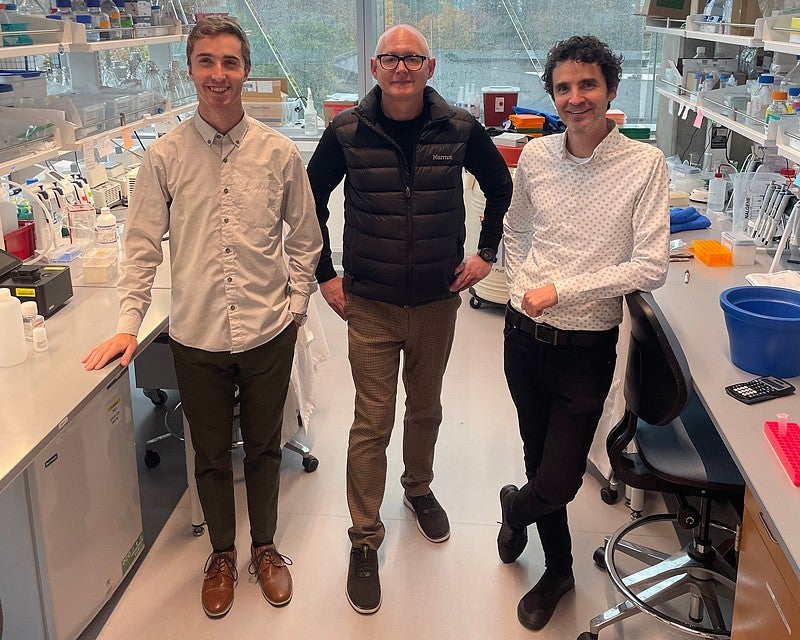The $75,000 award for next generation large-scale gene synthesis technology includes matching funding from the Knight Campus and the Office of the Vice President for Research and Innovation
Knight Campus assistant professor Calin Plesa has received a $75,000 grant from the MJ Murdock Charitable Trust through its Commercialization Initiation Program. Designed to support the commercialization of lab discoveries at research universities and biomedical research institutes, the funding will boost Plesa’s efforts to bring the groundbreaking gene synthesis technology known as DropSynth to market. The award includes matching funding from the Knight Campus and the Office of the Vice President for Research and Innovation for a total of $150,000.

Plesa hopes to capture a significant share of the fast-growing gene synthesis market, which is projected to reach over $10 billion by 2032. The process, which involves creating synthetic molecules with desired sequences, requires synthesizing a large library of DNA molecules and is fundamental to research in biotechnology, synthetic biology, and other industrial sectors. Current methods for synthesizing large DNA libraries are prohibitively expensive at scale, limiting scientific progress. DropSynth, which Plesa initially co-developed during his postdoctoral work with Sri Kosuri, now co-founder of the biotechnology firm Octant, drastically reduces the cost and increases the scale of gene synthesis.
“By democratizing access to these gene libraries, we aim to make them a standard tool in research across medical, industrial, biotechnology, and environmental science fields,” Plesa said. “The technology’s affordability and accessibility could revolutionize areas like cancer research, renewable energy development, and climate change mitigation, where large-scale gene synthesis has the potential to drive transformative breakthroughs.”
To bring the technology to market, Plesa co-founded SynPlexity, a startup leveraging DropSynth to make high-throughput gene synthesis affordable and accessible. SynPlexity has recently raised pre-seed venture capital funding from Portland Seed Fund and other investors and is now operating out of the Papé Family Innovation Center at the Knight Campus. The Murdock grant will help the company refine and optimize the technology, further reducing production costs and increasing the capacity of genes synthesized per reaction.
Plesa is joined in this effort by SynPlexity co-founder and CEO Craig Stolarczyk, a senior staff scientist in the Plesa Lab, as well as lab manager Sam Hinton. Together, they are focused on scaling DropSynth to meet the growing demand for large gene libraries, particularly in emerging fields like machine learning.
“In the past few years, there has been a surge in demand for large gene libraries, driven by the rise of machine learning models that require vast datasets to train effectively. These models can also generate tens of thousands of designs, each needing functional testing. With its unprecedented scalability and affordability, our technology is uniquely positioned to meet this demand, empowering researchers and industries to accelerate innovation.” Plesa said.
